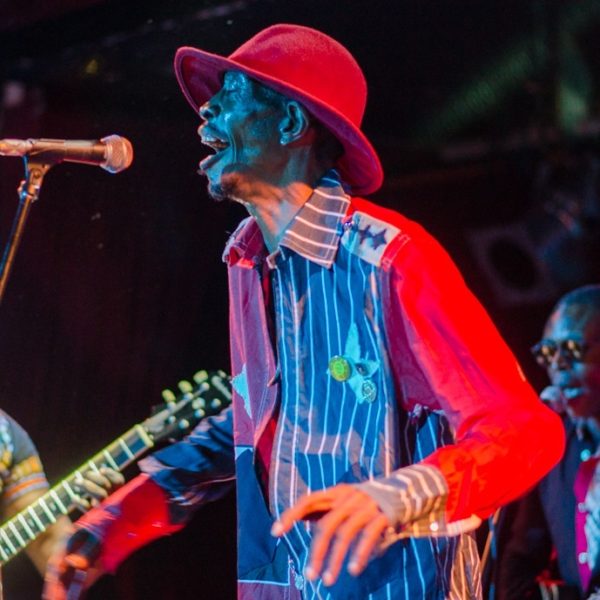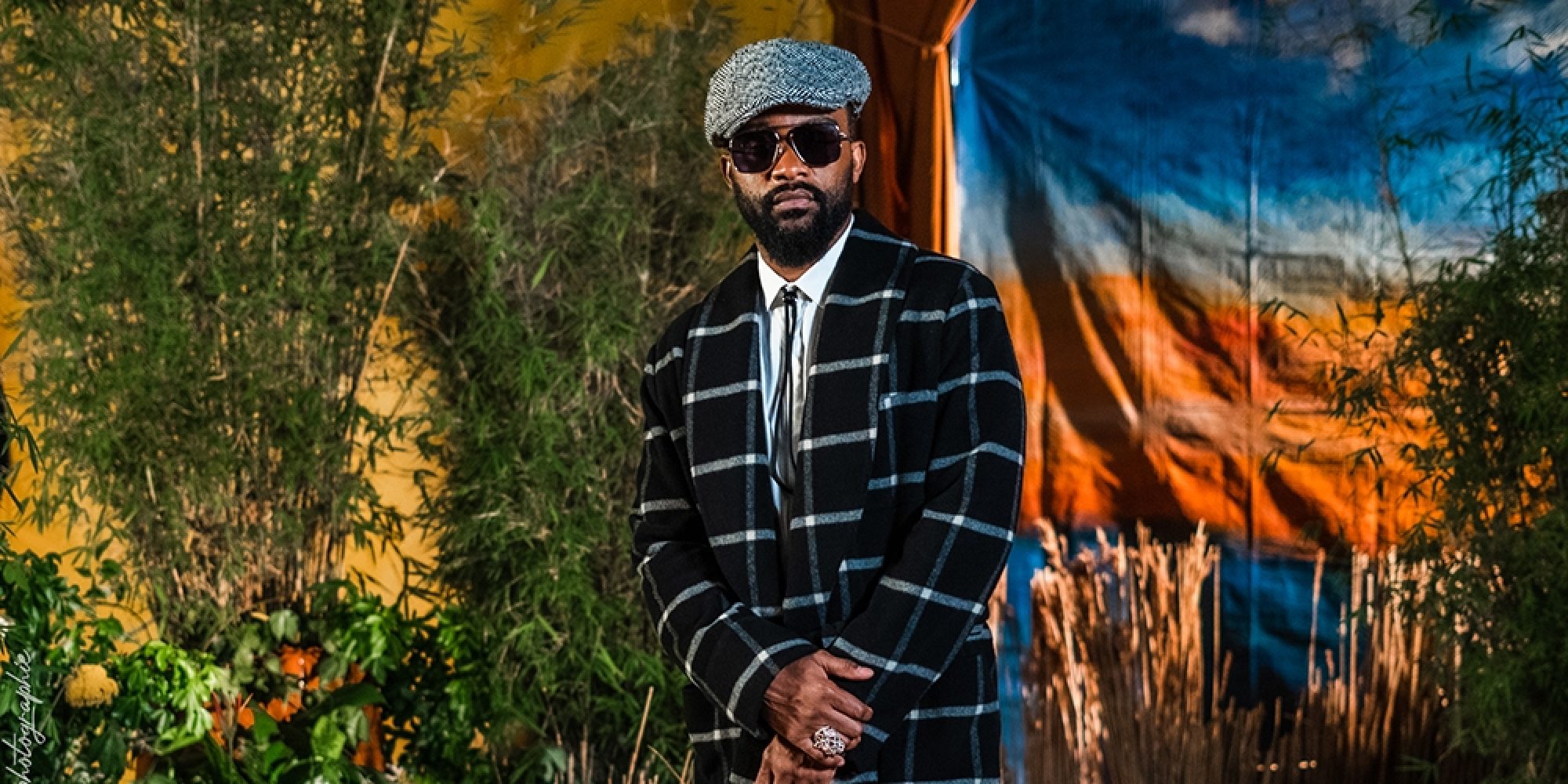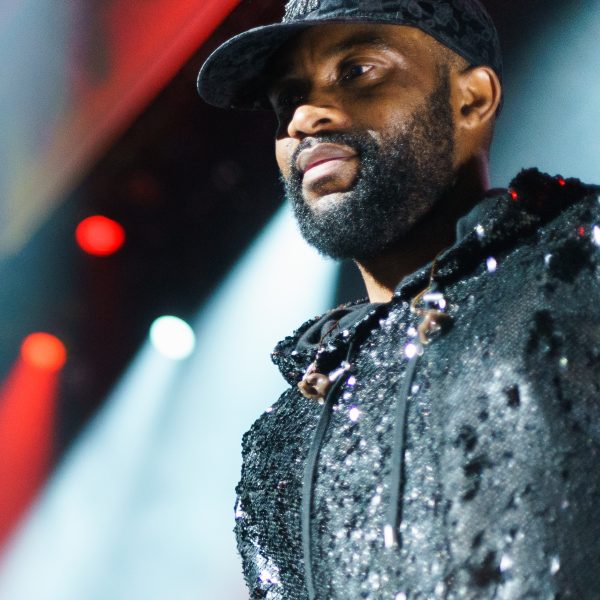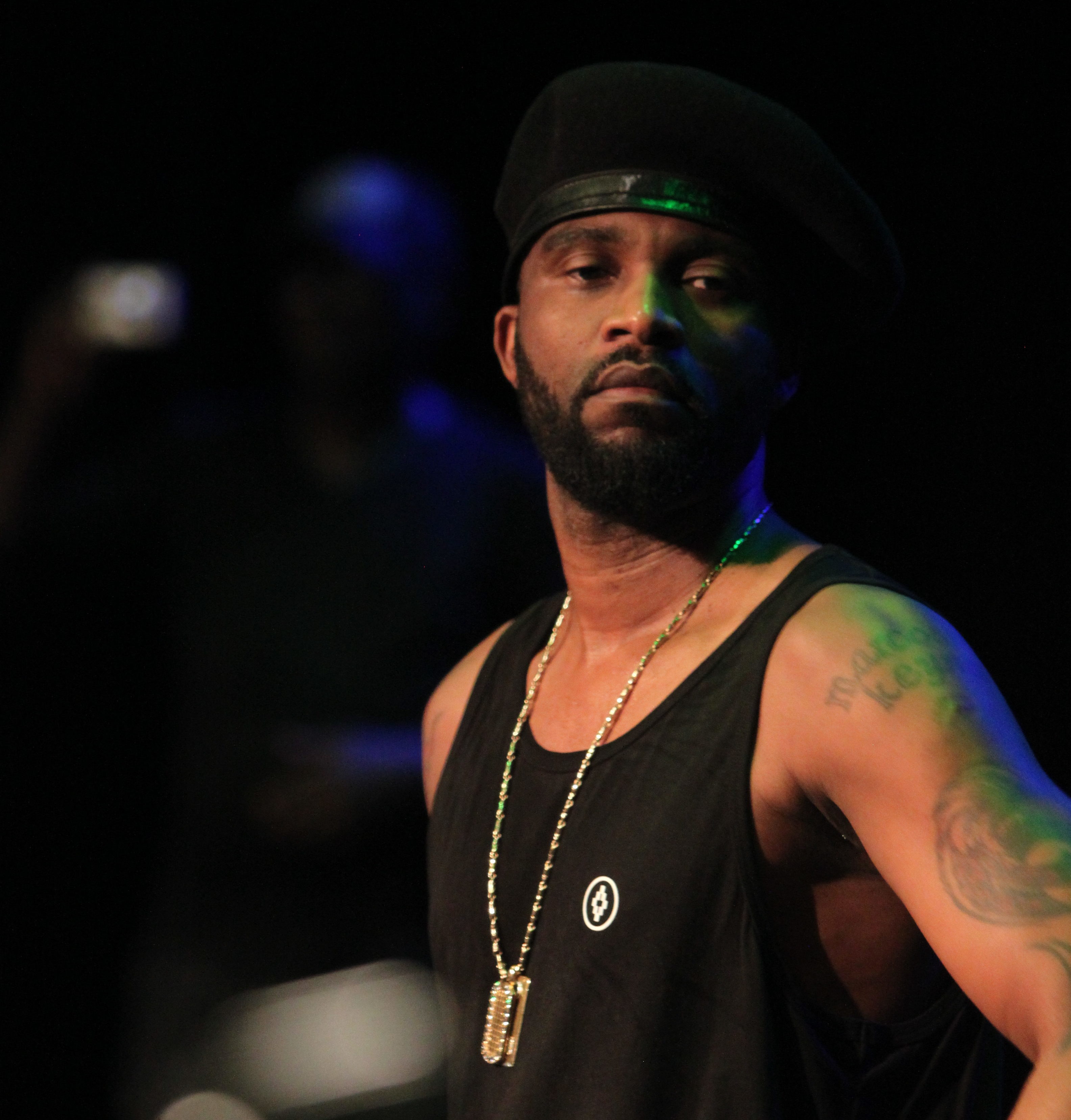Fally Ipupa is undeniably among the top African musicians on the scene today. An alumnus of Koffi Olomide’s Quartier Latin, Ipupa has enjoyed a spectacular solo career since 2006 when his debut album, Droit Chemin, went on to sell over 100,000 copies. His 2017 urban album Tokooos has gone gold in France. This fall, Ipupa has announced his seventh solo album, Formule 7. The album is currently being released song by song. Eventually, it will be a three-CD set. Afropop’s Banning Eyre reached Ipupa on tour in Africa to talk about the new work. Here’s their conversation.
Banning Eyre: Thanks for making time for me. It's great to talk with you.
Fally Ipupa: Thanks to you.
Where am I reaching you?
I am in Pointe Noire in Congo, Brazzaville..
I visited Brazzaville back in 1987. Our national radio program has been on the air since 1988, and we have covered Congolese music since the beginning. Kinshasa was the first African city I ever visited. So I have a deep feeling for Congolese music.
That's good. Very good.
I've been listening to your new album. It's rich and beautiful, and there’s a lot of it, 31 songs.
Thank you.
Our reporter Morgan Greenstreet interviewed you twice when you were in New York a few years back, and I have just read those interviews. Some very interesting stuff there, but since this is the first time we are talking, I'd like to hear a little bit about your history. Especially the beginning. I know you grew up in Kinshasa in the Badalungwa neighborhood and sang in church. What was the moment you knew you'd be a musician?
I knew since I was young. It's true that I sang in church, because everyone in my family sang in church. There was always music in our house, especially on Sunday. And from there I started singing in small neighborhood groups.
You have such beautiful vocal arrangements in your music. I wonder if some of that started from your choral singing in church.
Well, it's true that in church you have a lot of harmonies, a lot of choral singing. But it was also very much the music I heard in the street. That gave me a lot of models of harmony singing.
You were born in 1977, so you were coming of age in the heyday of Congo music and of course you had great models. But how did you get from playing in small neighborhood groups to be recruited in Quartier Latin with Koffi Olomide?
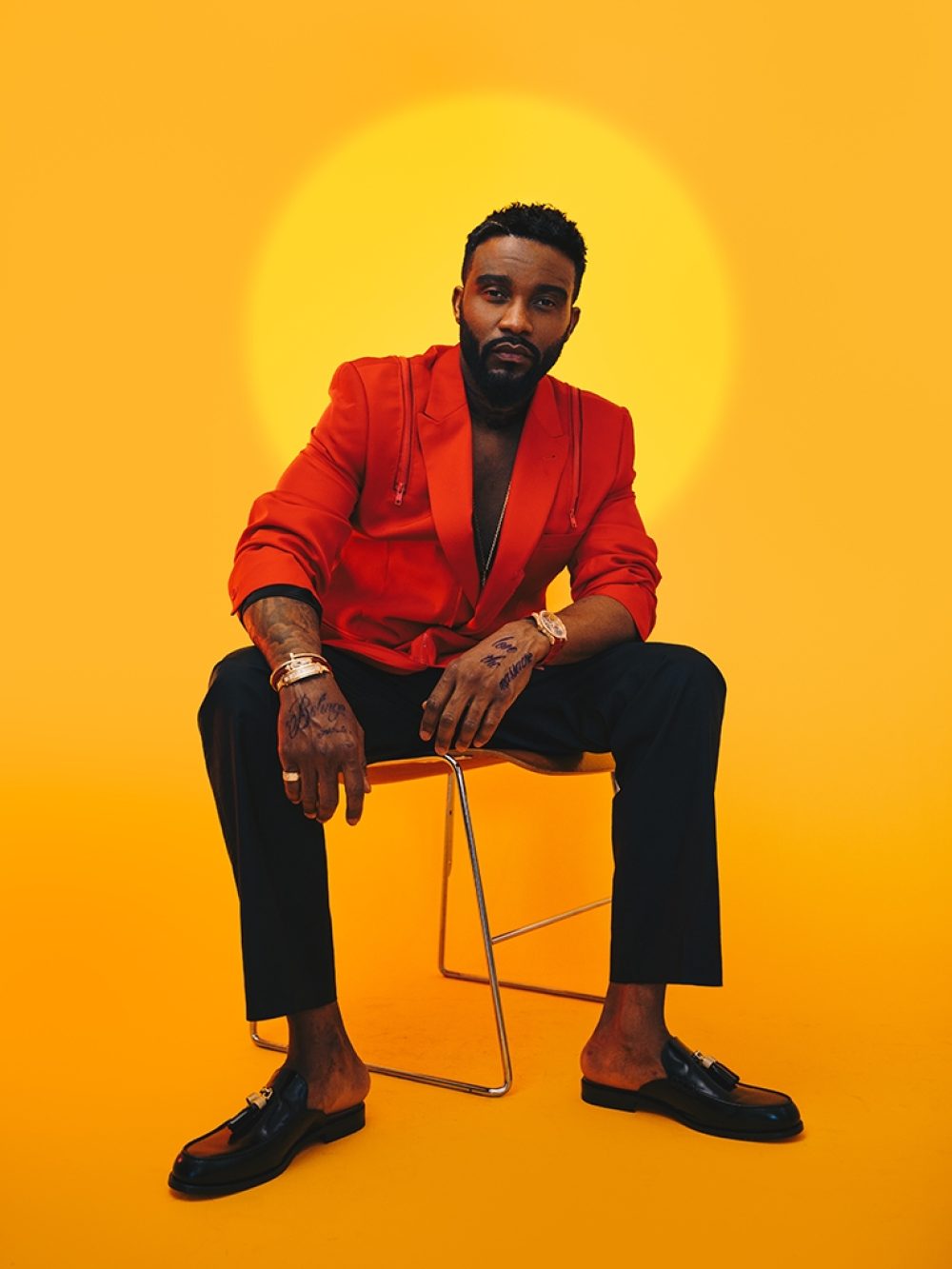
That was in 1999. Well, that's a long history. I can't tell you tonight. I can tell you that he sent someone to my neighborhood to invite me. But this is a long story I can tell you one day.
Well, I look forward to that. But it was he who invited you, so he clearly saw your talent. What do you think you learned from that experience working with Koffi?
I became a professional there. This was the first time I traveled to do concerts, so you are learning a lot of things, about contracts, big recording studios… Quartier Latin was a great school for me.
When our man Morgan spoke with you, it was the time of the first Tokooos album. As I understand, with Tookoos, you were making a connection between Congolese music and Afrobeats from Nigeria. I have read that some of your fans were afraid that you were abandoning rumba at that point.
First of all just to be clear, in my music, there is no Afrobeats. It's Congolese music, authentic and urban. It's international pop music, not Afrobeats. That's what makes my music popular. As far as the competition between Congo music and Afrobeats, Afrobeats is coming on strong now. That's something we applaud and respect, although we must say that Afrobeats has the advantage of singing in English. That's clearly a strength when it comes to promotion in England and America, in the Anglophone world. But I respect their success. It is good for African music.
Understood. Yesterday I listened to Burna Boy's new album and yours back to back, high-level work in both cases. I personally prefer your Congolese sound. There’s a sophistication, an elegance, and excellence in the vocal arranging that gets me every time. Very, very strong.
Thank you.
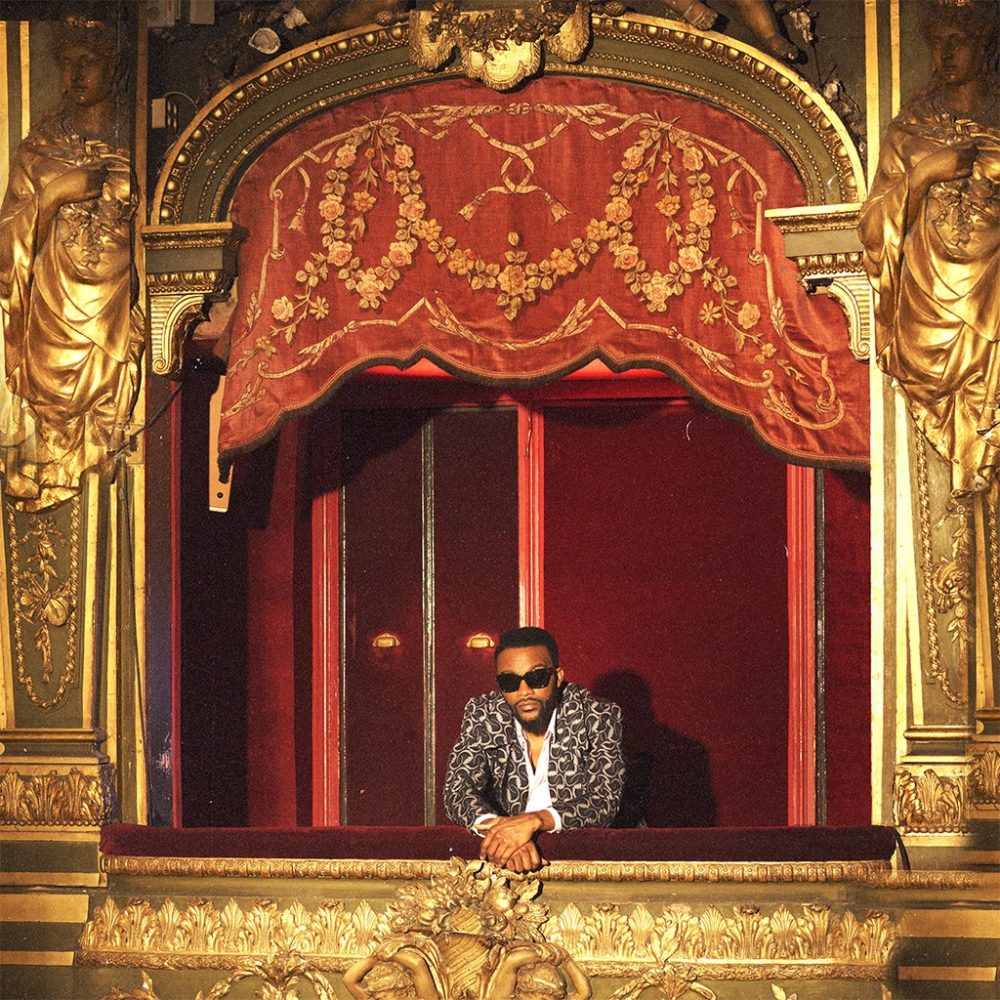
In your sound I hear a great loyalty to the rumba tradition. Rarely do I hear a fast seben, like Zaiko and all the groups that follow from there use so much. We recently did a show about Papa Wemba, one of my favorites. He struck a balance between vocal rumba, seben and international styles. In your music, you stick strongly to the rumba and the mid-tempo grooves, not much seben. Talk about that.
Thanks for the question. In Congolese music we have many varieties. There's the dancing variety, and varieties that feature singing more than seben. I'm in that tradition. I sing love songs with a lot of words, a lot of music. Of course in Congolese music you have to make people dance, but I have to say that my strongest side is rumba. On my albums, there are always a couple of songs that really move, with seben. But most of them are rumba songs. Rumba is the base of my music, and I always remain loyal to the music I started with.
That's something you share a bit with Koffi Olomide. He too is more based in romantic, sensual music. Of course dancing is there, but it's not the main thing. Do you think that’s something you took from your experience with Quartier Latin?
That is certainly something I took from that experience, because Quartier Latin is a rumba machine.
Indeed. We saw Koffi and the band recently in New York. The show was short, but very strong. Let's talk about a few songs from your new album, Formule 7. I have a couple I want to ask you about, but first, on the level of messages, are there some that are particularly important to you?
Let me start with “Formule 7” itself. It's a song that moves. It's for dancing and partying. I'm saying that I have found the formula to make people dance. Then there's a song called “Science Fiction.” I'm declaring my love, but it’s like science fiction. If you really love someone, even if they make you suffer, you still believe in that love. The third song I would mention is “Se Yo.” That one is about unconditional love.
A lot of love songs here. “Nous Deux” is one I particularly like.
That's one we're not releasing yet this year. That will come later. And yes, it is a love song.
So you're releasing this album in pieces, little by little. Some of the songs aren't out yet.
That's right. Not yet.
Tell me a little more about “Science Fiction,” which has a very nice video. How does the science-fiction angle figure in?
It's like you're living in a fiction. Your love is so strong that even if you get hurt, you stay in love with that person. You imagine that your love is like someone in a film. You believe in the happiness that's in that film.
But it's in your head and your heart.
Voila.
So even if it's not released yet. I'm interested in the song “Afsana.” It's got a cool groove. Quite different from the others. What's going on in that song?
That's a very romantic song. It's for guys who want to say to his woman, or a woman who wants to say to her man that the desire is strong. Also on that song, I try to mix rumba and compas.
Oh. Compas from Haiti.
Yes. From Haiti
Nice. I hear that. Another of my favorites is “De La Renta.”
That's also a love song. I'm telling a woman that she is beautiful. I'm telling her that I'm cold and I want her to make me warm. It's a really beautiful song. One of my favorites too.
Let's talk about “Eternity.” That one has a little more gravitas to it. It's in a minor key and there's a real seriousness about it.
Yes. That's essential rumba. “Eternity.” When you love someone it's for eternity this is a very, very romantic song. There are beautiful words in it. That's going to be one of the first songs on the album, just after “Formule 7.” “Eternity “is one of the strongest songs on the album, and it will come right after the dance of “Formule 7.” It's a beautiful declaration of love.
I feel that. What's your process for writing a song? Do you start with words?
No, I start with the music, with the guitar. The lyrics come afterwards.
Interesting. I play guitar. I played with Congolese musicians in Boston back in the 1990s. They were strict teachers. It was quite an education. There was a musician named Fellyko Tshikala who had played bass in Victoria Eleison. He landed in Boston and formed a group there with local musicians. It was interesting to learn how that music gets arranged. In the history of Congolese music, the guitar is very important. And that's what you start with when you write a song. I assume you play guitar.
Yes, I play. The guitar gives me the time, the feeling.
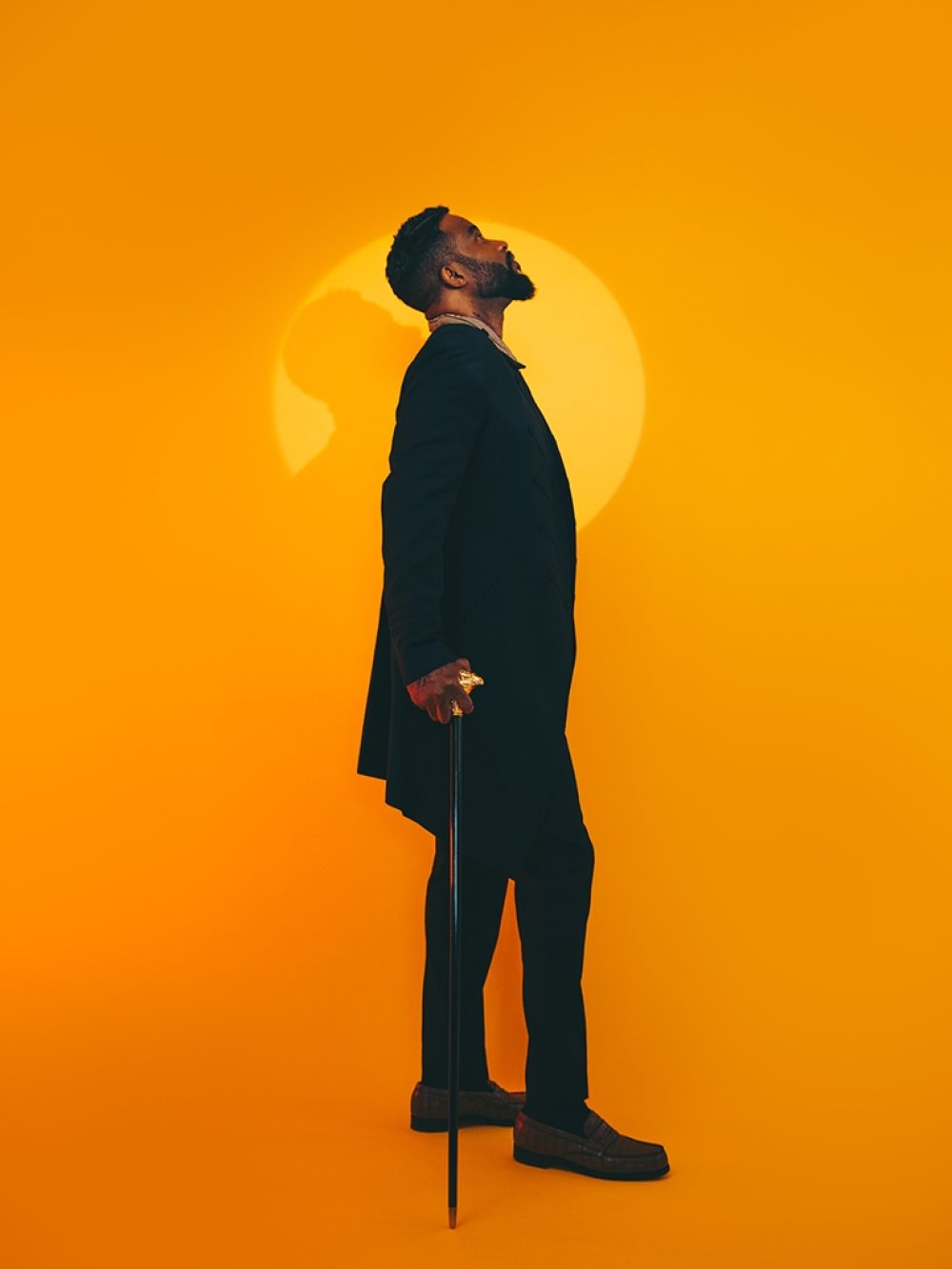
I've read a little about your philanthropic work with UNICEF and UNESCO. How did that come about?
My motivation was just that I wanted to help. We live in a challenging world, and it's important for we artists to use our image, our force, our energy to try to create some solutions to all the problems that exist in the world. We can't just accept these things. We have to be ambassadors.
I know a fair amount about Congolese history. It's a very tough history with lot of brutality, a lot of tragedy. If you think about this moment in the history of your country, do you have hope that things are going to get better?
I believe. I believe. We all want these wars and massacres to end in eastern Congo, around Goma and Bukavu. These wars and massacres must stop. We have to believe these things will end.
It has always amazed me that out of all that sadness comes such joyful music. It’s a kind of paradox.
Our music is phenomenal, for sure. Our history is phenomenal too. It's very complicated. But, well, we have to have hope. We have to believe.
The host of our program, Georges Collinet, a spent a lot of time in Congo over the years. He at one point interviewed President Mobutu. Despite his faults, Georges notes that Mobutu effectively blocked international music on the national airwaves, and that helped to create the wonderful and unique music the Congo has now. There was a kind of move to keep foreign influences out during the 1960s and ‘70s. That gave Congo music a chance to form its own character. What do you think about that?
Well, blocking? I don't know about that. In any country in the world there is a place for the music of foreigners. In France. In South Africa. In Nigeria it’s the same thing. I don't think Mobutu blocked music, but he did create a space for local music. That wasn't bad. Mobutu was proud of our authenticity. He helped to expose a lot of artists. He also did bring a lot of American artists, like James Brown, B.B. King, Miriam Makeba. He organized that big festival in 1974. [Zaire ‘74] So it wasn't about blocking. It was just making Congolese people proud of their own music, their culture, their language.
In your 2016 interview with Morgan, you spoke about the competition between Congolese artists. It was something you regretted. It had gotten out of control. Is that still the case? You compared these artists to Nigerian artists who are much more willing to work with each other and collaborate.
It's still a problem. Congolese artists have this polemic of competition. It's a useless conflict. It's really too bad. It's one thing to have a loyal competition and to be able to work together and collaborate. That's what really pushes our music forward. It's too bad. Maybe it will get better one day.
What can you do as a big artist in the scene to help with that?
Nothing. Really nothing. It was really our forebears, our grandfathers who created and must repair this situation.
Perhaps it's a product of that difficult history. One more question for you. At the end of the year we do a program called “New Africa.” The idea is to ask artists about something new that they've discovered in African music this year. It could be an artist, a song, an event. What was new for you this year?
Well, for me what was new this year was that I played a big concert at the Stadium of the Martyrs for more than 100,000 people. For me that was something I had never done. Also Tokoos became the first gold record in Central Africa. I'm very proud of that.
Wow, so that's the biggest concert ever in Congo? Congratulations. So finally, when are you gonna come back to New York?.
We're working on an American tour for next year.
We will see you then. It's a pleasure to speak with you. And good luck with everything in Brazzaville.
Thank you very much.
Related Audio Programs
